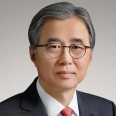President Lee Jae Myung recently attended the G7 Summit in Kananaskis, Canada, at the invitation of Canada. Through this occasion, South Korea clearly reaffirmed its identity as a liberal democracy and its unwavering commitment to contributing to upholding the liberal international order alongside Western countries.
However, despite South Korea’s status as one of the world’s top ten economies and having surpassed middle-power status in the fields of technology, security, and diplomacy, the country remains only an “invited guest” or “unofficial partner” in key international cooperation mechanisms such as the G7 and the Quad. This does not align with South Korea’s actual status and role on the global stage, nor does it serve its national interests.
It is time for South Korea to move beyond the role of guest and become an official member of the G7 and the Quad. This is also compatible with President Lee’s policy of “pragmatic diplomacy.” At the Asan Plenum, an international forum hosted by the Asan Institute for Policy Studies in April, former U.S. Deputy Secretary of State Dr. Kurt Campbell emphasized that, “South Korea must participate more actively in major international forums. This means inclusion in the G7 and participation in the Quad.” He argued that given its national capacity and international standing, South Korea should take on a greater role in global governance.
The G7 initially began as a global economic consultative body designed by the United States and major European countries to tackle the global economic crisis triggered by the oil shock. In its early days, it functioned as a forum for developed economies to coordinate on global economic and financial crises. Today, however, it functions as a political alliance shaping international order on diplomacy, security, climate change, and digital governance, with its roles and scope likely to expand further.
The Quad is a security consultative body launched by the United States, Japan, Australia, and India in response to China’s growing assertiveness. First announced in 2007 and revitalized under the Trump administration in 2017, the group was described by President Biden in May 2022 as being fundamentally about “democracies versus autocracies,” stressing the need for democracies to prove they can deliver.
The Quad has since evolved beyond a traditional security platform, expanding cooperation into diverse areas including vaccines, semiconductors, artificial intelligence, maritime security, and cybersecurity. There is significant room for South Korea to participate, particularly in strengthening supply chains and maritime security in the Indo-Pacific. The Korean Navy is already the world’s sixth largest and possesses advanced maritime patrol, mine countermeasure (MCM) capabilities, and Aegis combat systems, making it a valued partner in Quad naval exercises. South Korea’s participation is indispensable in one of the Quad’s core agendas of restructuring semiconductor supply chains. Samsung Electronics and SK Hynix together account for over 60% of the global memory chip market, making them essential assets to the tech alliance envisioned by the United States and Japan.
Amid growing instability in the global economic and trade order caused by the tariff wars initiated under President Trump, the importance of multilateral cooperation mechanisms like the G7 and the Quad is growing ever more salient.
Joining the G7 and the Quad presents both risks and opportunities for South Korea. If Seoul acts now, it can become a “rule-setter,” but if it delays, it may be sidelined as a “rule-taker.” As the global order is being reshaped, failure to establish itself as a decisive player now will push South Korea to the periphery of the new international order for decades to come. South Korea already belongs to the democratic, rules-based order, and defending that order is directly tied to our national security and prosperity. It will also serve as an opportunity to implement the Lee Jae-myung administration’s vision of “pragmatic, interest-based diplomacy.”
* The view expressed herein was published on June 23 in The Chosun Ilbo and does not necessarily reflect the views of The Asan Institute for Policy Studies.

 Facebook
Facebook Twitter
Twitter